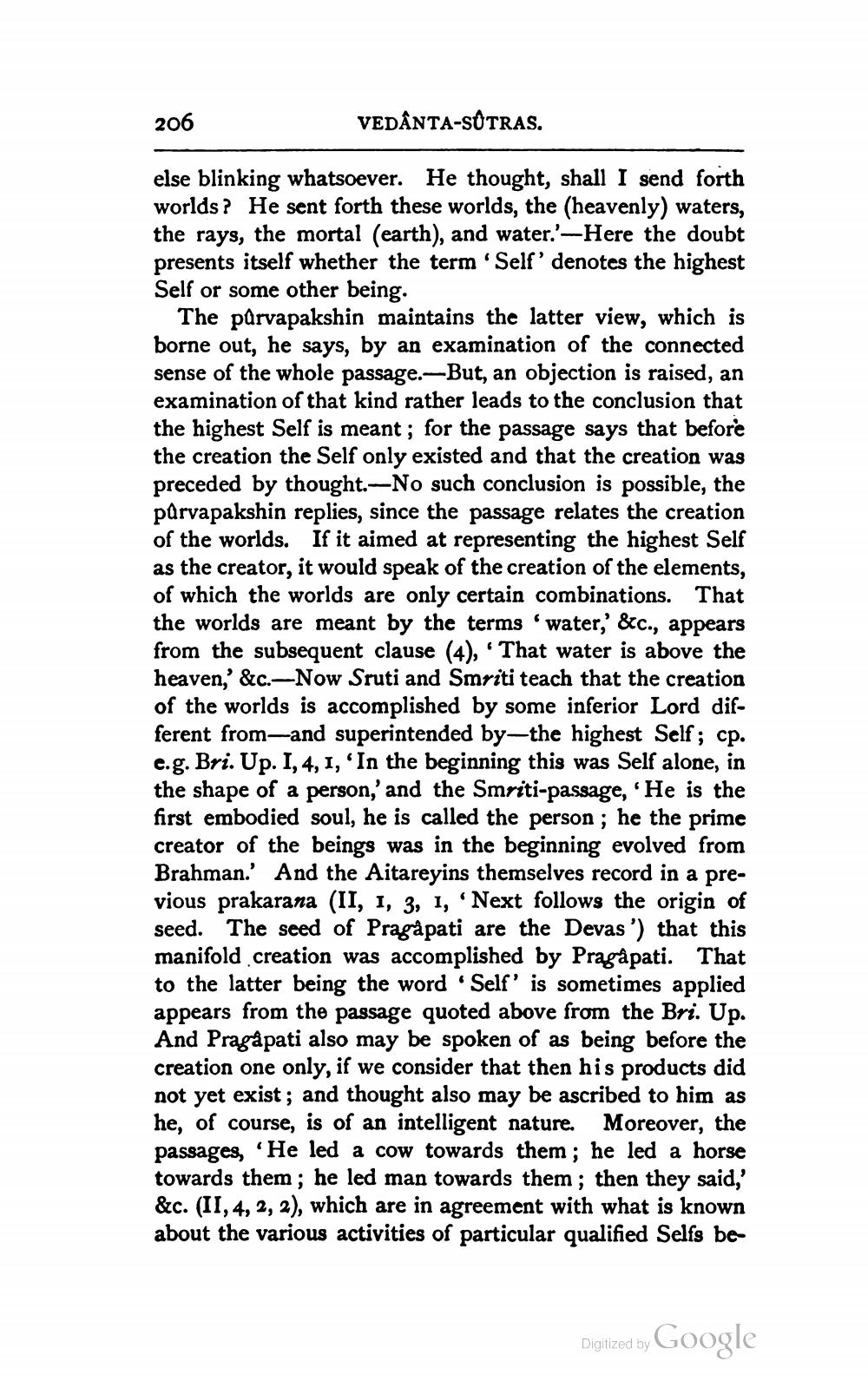________________
206
VEDÂNTA-SOTRAS.
else blinking whatsoever. He thought, shall I send forth worlds ? He sent forth these worlds, the (heavenly) waters, the rays, the mortal (earth), and water.'—Here the doubt presents itself whether the term 'Self' denotes the highest Self or some other being.
The pārvapakshin maintains the latter view, which is borne out, he says, by an examination of the connected sense of the whole passage.--But, an objection is raised, an examination of that kind rather leads to the conclusion that the highest Self is meant; for the passage says that before the creation the Self only existed and that the creation was preceded by thought.-No such conclusion is possible, the parvapakshin replies, since the passage relates the creation of the worlds. If it aimed at representing the highest Self as the creator, it would speak of the creation of the elements, of which the worlds are only certain combinations. That the worlds are meant by the terms 'water,' &c., appears from the subsequent clause (4), “That water is above the heaven,' &c.-Now Sruti and Smriti teach that the creation of the worlds is accomplished by some inferior Lord different from and superintended by-the highest Self; cp. e.g. Bri. Up. 1,4, 1, 'In the beginning this was Self alone, in the shape of a person,' and the Smriti-passage, 'He is the first embodied soul, he is called the person; he the prime creator of the beings was in the beginning evolved from Brahman.' And the Aitareyins themselves record in a previous prakarana (II, 1, 3, 1, 'Next follows the origin of seed. The seed of Pragapati are the Devas') that this manifold creation was accomplished by Pragàpati. That to the latter being the word 'Self' is sometimes applied appears from the passage quoted above from the Bri. Up. And Pragå pati also may be spoken of as being before the creation one only, if we consider that then his products did not yet exist; and thought also may be ascribed to him as he, of course, is of an intelligent nature. Moreover, the passages, 'He led a cow towards them; he led a horse towards them; he led man towards them; then they said,' &c. (II, 4, 2, 2), which are in agreement with what is known about the various activities of particular qualified Selfs be
Digitized by
Digized by Google




